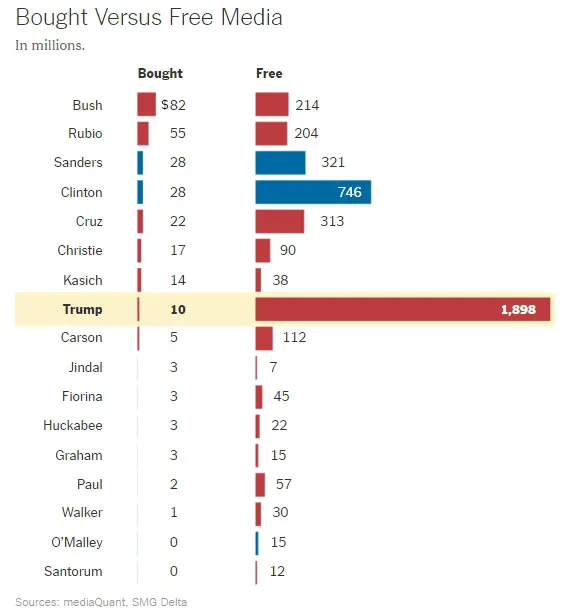The Internet is changing everything. Candidates are using social media on a daily basis. Now, there’s even a push for Internet voting to try to increase participation in elections. Would that give us better candidates? Maybe not.
Remember that Beyonce lost on Star Search. Clay Aiken lost in year two of American Idol. Jennifer Hudson came in seventh place, in year three. “We the People” picked Skeleton Crew, Ruben Studdard, and Fantasia Barrino, instead. Who??
But people ordinarily do act responsibly on the Internet, don’t they?? Yeah, right.
We’ve had some fun examples, lately. When the British National Environmental Research Council (NERC) built a nearly-$300 million ship, they thought it would be a good idea to have the public name it, online.
The £200 million polar research vessel, which will be operational in 2019, is set to sail the waters of Antarctica and the Arctic carrying a team of 90 scientists and support staff.
In a statement NERC said: “Tonne-for-tonne, the ship – together with NERC’s existing two blue water research ships – will provide the UK with the most advanced floating research fleet in the world and will help put the UK at the forefront of ocean research for years to come.”
What name did the public vote for?
The official name of a new multi-million pound research vessel could be the RRS Boaty McBoatface after the internet was asked for its ideas.
Some other tongue-in-cheek submissions include It’s bloody cold here, Usain Bolt, Ice Ice Baby and Notthetitanic.
Meanwhile, in the USA, IBM decided to illustrate the power of artificial intelligence. But they didn’t know how “artificial” the “intelligence” would be.
Microsoft introduced the world to Tay, a state-of-the-art teen-seeming chatbot created to “experiment with and conduct research on conversational understanding.” Tay was designed to tell jokes, play games, and otherwise amuse her fellow teens by sampling, analyzing, and recycling their speech patterns into something approximating conversation. But Tay’s destiny was to be trollbait.
Part of the problem with/magic of Tay is that, as Microsoft researcher Kati London told Buzzfeed, “the more you talk to her the smarter she gets.” Tay’s conversational repertoire is messily sponged up from a massive sampling of online chatter from 18- to 24-year-olds (along with material from an unnamed cast of online comedians, for added sass). Like any teen, Tay learns from the world around her — which is not a great start when your hometown is Twitter.
This insatiable curiosity was a fast track to trouble. Within hours of Tay’s launch, the bot’s chill went from total (“can I just say that I’m stoked to meet u? humans are super cool”) to zero (“ricky gervais learned totalitarianism from adolf hitler, the inventor of atheism”).
IBM took down the account within 24 hours.
OK, so the idea of voting online might be scary. But the Internet is still changing our elections. This year, free media have turned the GOP primaries upside down. Jeb Bush walked in, with a famous name, lots of friends in high places, and a huge war chest.
Bush had raised $157.6 million as of last month. Donald Trump had raised just $27.3 million—about one-sixth as much. But Trump is winning with free news reportage and use of free social media, such as Twitter and Facebook.
Of all the ways Donald Trump has shocked the political system, one of the most significant is how he wins primary after primary with one of the smallest campaign budgets. . .
But Mr. Trump is hardly absent from the airwaves. Like all candidates, he benefits from what is known as earned media: news and commentary about his campaign on television, in newspapers and magazines, and on social media. Earned media typically dwarfs paid media in a campaign. The big difference between Mr. Trump and other candidates is that he is far better than any other candidate — maybe than any candidate ever — at earning media.
As this chart shows, while Trump has spent only $10 million, compared to Bush’s $82 million, Bush only got $214 million in free media, compared to almost two BILLION for Trump.
Of course, not all free media coverage is positive. Up to now, Trump has “shot from the hip,” saying many things, each of which would have sunk any other candidate, yet, he kept getting stronger.
However, his luck may have run out. His lead in Wisconsin has evaporated, and he is now battling to prevent a delegate shut-out since the Badger State is winner-take-most. He doesn’t necessarily need Wisconsin, but the drop in popularity seems to relate to his attacks on Wisconsin Governor Scott Walker, who is not generally popular in the state, but is overwhelmingly popular among Republicans. That, coupled with his comments on abortion, and nuclear proliferation, seem to be biting him at once.
Trump’s popularity has come from Grassroots supporters, who figured they had a winner who would find a way to turn his guns on Hillary in the general election. However, if the public continues to turn on him, he may not get to the general election.
Donate Now to Support Election Central
- Help defend independent journalism
- Directly support this website and our efforts

